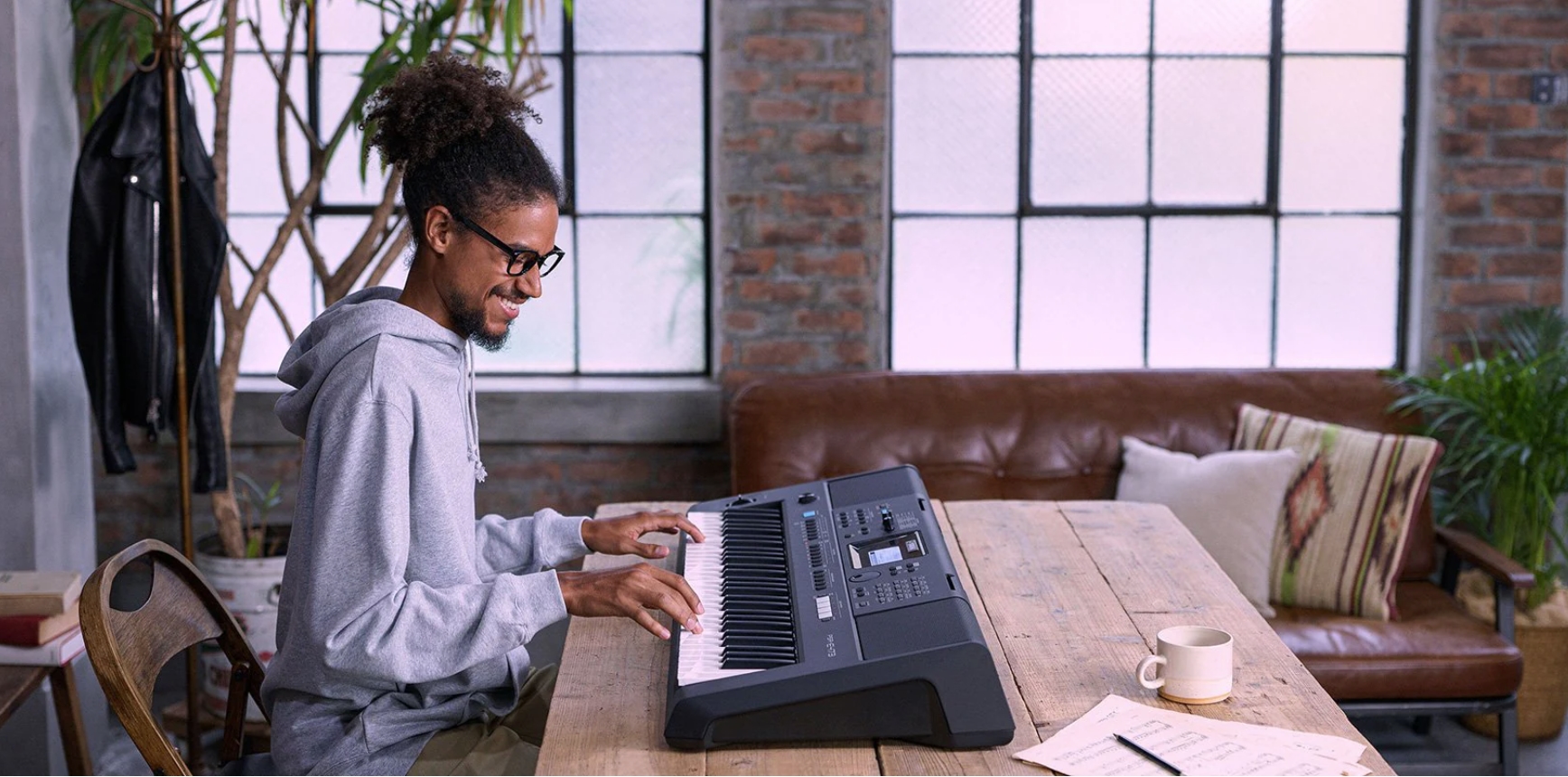At one time Casio was the go-to name in intelligent home keyboards but there’s a lot more competition these days. Nevertheless Casio can still knock out a solidly performing portable arranger keyboard that is great value while being packed with features behind a calm and minimal exterior.
The CT-X700 has 600 sounds and 195 rhythms powered by the AiX sound engine. This ensures that all the acoustic instruments are faithfully and naturally modelled with every nuance and articulation captured. The grand piano sound is superb but the quality continues through the electric pianos, band instruments, orchestral and off into the realms of synthesizers. No keyboard this cheap should sound this good.
There are hundreds of rhythms to browse through, from world music to decades of pop and rock classics. You can build patterns and record alongside into the 6-track recorder. There are 161 songs ready for you to play along to. You can pull sounds and rhythms together into “Registrations” and store up to 32 for instant recall.
Casio’s CT-X700 is a remarkable machine, easy to use and doesn’t baffle you with endless controls. It’s been around a few years now and yet should still be a solid choice for anyone wanting to make music at home. If you’d like more of everything and bigger, beefier speakers then the X3000 and X5000 are great options if you are on a larger budget.
Street Price:
Casio CT-X700 $199
Casio CT-X3000 $349
Casio CT-X5000 $499
Casio.com
